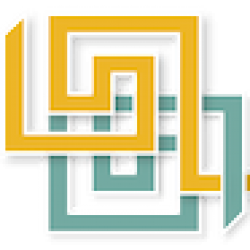How does ARIADNEplus work
The ARIADNEplus catalogue is searchable according to the three facets of “when” (time), “where” (space), “what” (object) and keywords drawn from controlled vocabularies. Searching provides a list of the datasets corresponding to the selection criteria with summary information about their content and a link to the source data, which can thus be accessed by the user according to the rules established by the content owner. The project does not aggregate or move data, but only the metadata of the datasets, which are maintained and controlled by their owners. At present, about two million datasets have been catalogued, corresponding to a huge amount of information as each dataset may comprise, for example, an entire report with related images, drawings, or a complete database including thousands of individual records. The catalogued content types range from individual finds to monuments and sites inventories and from the report of one single intervention to the results of a long-term archaeological mission.
Access to the catalogue is free.
ARIADNEplus extends ARIADNE in geographic and temporal coverage, and in the range of topics addressed, now incorporating additional information about scientific analyses. It will also provide services to further process and re-use those data. ARIADNEplus is funded to support researchers, but we believe it may be important and useful also for heritage agencies and managers.
The ARIADNEplus Partnership
The 41 ARIADNEplus partners come from 23 European countries, plus 4 international partners.
See which partners come from your country.
Policies and strategies
The ARIADNEplus work plan includes a group of activities dedicated to documenting and proposing relevant policies and strategies for data such as the application of the FAIR principles and the certification of repositories. It will also address some fundamental issues, for example developing guidelines for the creation, management and sustainability of archaeological repositories. Among others, ARIADNEplus will distribute a Data Management Plan (DMP) template tailored to the needs of archaeological research and compliant with standards and EU requirements. Compilation of a DMP is going to become compulsory for all funded research, and in several countries in Europe it already is.
There is a European crisis in physical repositories, and a pressing need for guidelines for physical archives, but it is equally important that digital archives are encompassed. Such documents may be of particular interest to heritage managers and their agencies. Moreover, our activity on policies and strategies includes provisions for training users, researchers and managers alike. To facilitate serving the different communities targeted by these activities, it is planned that the support material, initially prepared in English, will be translated into various EU languages. Such localization will also take into account local regulations and the diverse needs.
In general, the scope of the ARIADNEplus policies and strategies activities is not restricted to research: if there is a specific interest, they can include subjects more related to other remits, such as data for heritage management and site conservation.
Networking and training
Consolidating a comprehensive, active and informed community is one of the goals of the ARIADNEplus project, which envisages a large number of initiatives, such as workshops, sessions at events, meetings and dedicated communication channels. Particular attention will be dedicated to regions or countries where archaeological dataset creation, processing and management may be less advanced compared to the others: a working group on Central and Southern Europe has already been set up. A similar approach will target groups defined according to their specific needs, for example museums, archaeological sites, and so on; the same will apply to different roles in cultural heritage and archaeology, such as site managers, museum curators, investigators and researchers, teachers, and communicators.
Many of the networking activities include a substantial training component, with the provision of training material both for direct participation, e.g. documentation and guidelines, and for remote participation, e.g. webinars.
The ARIADNEplus training plan also envisages specific training activities. These include tutorials and training workshops as well as knowledge transfer actions on individual projects, in which a small team is directly supported by ARIADNEplus experts.
All of the training activities have no cost for participants; most of them provide support for travel and subsistence. Training documentation is usually in English, but translations may be provided if there is sufficient request.
Technology
Although most of the technology employed in ARIADNEplus concerns the data integration goals of the project, including the creation of the searchable catalogue and the development of a Linked Open Data approach, a key role is played by the data services which the project will make available. These include tools for data analysis (e.g. for data mining and Natural Language Processing) and for data synthesis, (e.g. visualization of images and 3D, locating data on a map or in time, browsing the data using Linked Data, and so on). ARIADNEplus uses multilingual vocabularies to enable describing the queries with terms in many languages and searching documents written into languages other than English.
We will also develop a number of pilot applications, to demonstrate service usage in exemplary cases. Research scenarios not included in the ARIADNEplus portfolio may be considered for inclusion, and in any case assistance will be provided by high-level teams from the ARIADNEplus partnership that includes the best of European research in digital archaeology.
Visit our web site (www.ariadne-infrastructure.eu) and use the portal (portal.ariadne-infrastructure.eu) to get more detailed information (in English) about the data processing services offered.
Why ARIADNEplus is important for researchers
The ARIADNEplus catalogue covers a large number of digital archaeological repositories, in practice most of the European ones. Archaeologists may use the catalogue to complement their research work with valuable information not directly available otherwise. Access to the catalogue and to the services is free. The catalogue and its services are tailored on research activities, so they facilitate data discovery, access and re-use.
Training and knowledge transfer activities are designed to support the needs of researchers in using information technology. In the previous ARIADNE project, several hundreds of researchers fruitfully participated in training and about 70 projects received personalized assistance on the management of the digital outcomes of their archaeological research.
ARIADNEplus will consider any data related problem arising in the course of an archaeological investigation and will advise about the use of the ARIADNEplus services to address it. Feel free to contact ARIADNEplus via your local ARIADNEplus partner or via the project central offices to receive a personalized answer to your needs.

